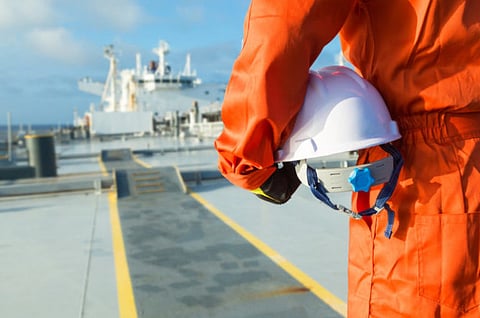
- NEWS
- the EDIT
- COMMENTARY
- BUSINESS
- LIFE
- SHOW
- ACTION
- GLOBAL GOALS
- SNAPS
- DYARYO TIRADA
- MORE

Foreign shipowners belonging to the International Chamber of Shipping (ICS) and the International Maritime Employers’ Council (IMEC) have expressed concern over the omission of a provision in the proposed Magna Carta for Seafarers law.
The said bill was already discussed during the Bicameral Conference Committee hearing last 20 May before its enactment into law by Congress.
In a letter sent to Executive Secretary Lucas Bersamin, Guy Platten, secretary general of the ICS, and IMEC chairperson Belal Ahmed, referred to the removal of Section 59 (Execution of Judgment and Monetary Awards) from the said bill, the provision that is expected to become the enabling law of the Maritime Labor Convention 2006 and other international conventions.
“Section 59 is intended to address the longstanding problem of ambulance chasing, spearheaded by ambulance-chasing lawyers with significant consequences for the maritime employment landscape in the Philippines and resulting in seafaring jobs being driven away from the country,” they said.
ICS is the global trade association for merchant shipowners and operators, representing all sectors and trades and over 80 percent of the world’s merchant fleet, which includes the Filipino Shipowners Association.
IMEC, on the other hand, is the international employers’ organization dedicated to maritime industrial relations, representing over 250 shipping companies worldwide, employing more than 300,000 seafarers of 68 nationalities, including in the Philippines.
“While there are suggestions of an increase in deployment of Filipino seafarers to work on board ships, these are attributable primarily to deployments of hospitality and entertainment staff in the cruise sector. Unfortunately, the same cannot be said for the deployment of Filipino seafarers duly certified in line with the International Maritime Organization’s International Convention on Standards of Training, Certification and Watchkeeping for Seafarers (STCW),” the letter stated.
Ambulance chasing contributes significantly to the decline in STCW seafarers’ deployment.
STCW Filipino seafarers accounted for 30 percent of the global workforce in 1995, in contrast to the 14 percent reported in 2021, based on the latest ICS/BIMCO Seafarer Workforce Report.
They maintained that ambulance chasing is the biggest problem maritime employers face in the Philippines and contributes significantly to the decline in STCW seafarers’ deployment.
Based on the report by the International Group of Protection and Indemnity Clubs (IG), in September 2018, the quantifiable damage from ambulance chasing (an unrecovered amount due back to shipowners by way of garnishment and restitution of legal cases of Filipino seafarers) was $30.5 million.
However, a recent update from the IG said that as of September 2023, the unrecovered amount reached $52.6 million.
“Regrettably, those seafarers that genuinely deserve lawful disability benefits are also not receiving them, as the ambulance chasers retain the greater portion. It is therefore crucial to maintain Section 59 in the final version of the Magna Carta so that maritime employers can continue investing in the Filipino seafaring workforce with certainty and confidence,” the letter stated.
The two group leaders insisted that Section 59 is the only request of the international shipping industry from the President and the Philippine government, which, if properly implemented, will go a long way towards addressing the proliferation of ambulance-chasing cases.
“The international maritime community is therefore respectfully calling for the re-inclusion of Section 59 into the Magna Carta of Filipino Seafarers, in line with Your Excellency’s clear commitment to strengthening the national seafaring industry by improving the Philippines maritime education and training regime and resolving the long-standing problem of ambulance chasing,” they said.
